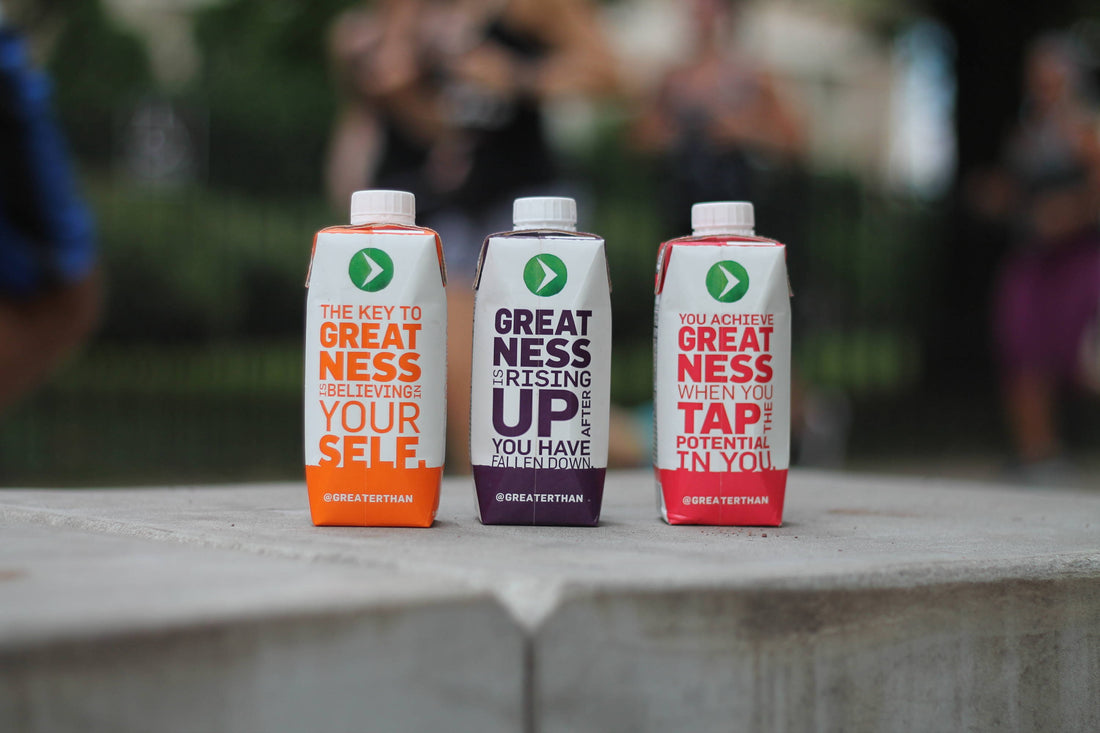The image is clear, the valiant athlete battling extreme heat and exhaustion, reaching for the sports drink that will revitalize them and help to overcome adversity, conquer their challenge and emerge victorious. It’s a beautiful scene and admirable idea to push ourselves to the brink of our limits and have something to spur us on past what we didn’t think was possible. That being said, it is generally unrealistic and certainly not something we encounter on a daily basis, and frankly even the most athlete competitors or athletes are not reaching these extremes every day. However, we tend to still consume sports drinks filled with all sorts of extras that we don't truly need because we haven’t pushed to the limits that particular day, often times we drink them because of the marketing we’ve seen, the preconceived notion that they must be good for training if they are used in these extreme circumstances, and sometimes just because they taste good. In fact, none of these are truly applicable reasons to reach for a sports drink in an average workout or training session, and there are much more effective alternatives that would actually create better results.

Have to Quench Your Thirst? Traditional Sports Drinks Might Not be Your Best Option
When Are Traditional Sports Drinks Appropriate?
Traditional sports drinks contain water and electrolytes, but also contain a great deal of sugars, carbohydrates and acidic properties. They are effective in extreme bouts of exercise, usually longer than 90 minutes and at a high intensity. The marketing concept of the athlete reaching for the sports drink when they are utterly exhausted is somewhat accurate as that might be an appropriate situation for such a drink, however when you’ve broken a sweat and spent 45 minutes in the gym, you are certainly not at the brink of collapse and completely exhausted of energy and nutrients. The electrolytes, carbs and sugars in sports drinks provide a temporary boost to energy and performance, and are necessary when we’ve exhausted all of the energy and nutrients we have; thus, these might be appropriate towards the end of a marathon or an intense competition looming towards its second hour. The rub here is that while this may sound great, in all reality we are not reaching these levels on a daily basis and for the average gym attendee or fitness enthusiast are not realistically close to exhausting every ounce of energy we have in each workout. Even the best athletes and competitors rest and train sub maximally, otherwise they would break down over time. Sports drinks are best reserved for moments of extreme exertion and duration, not so much for our Saturday morning jog around the neighborhood.
Why Aren’t They Appropriate?
Sports drinks contain a great deal of unnecessary ingredients that are in fact detrimental to performance in most cases, or at the least have minimal positive effect. Research has shown that more often than not, performance shows no increase when consuming sports drinks as compared to placebo’s. Moreover, sports drinks contain a great deal of marketing and taste better than plain old water, thus they are more appealing but not actually contributing to much. In fact, many people, especially youth tend to drink them purely for taste and studies have linked excessive consumption of sports drinks to obesity, certainly not the results we are looking for from a drink that is marketed to improve our hydration. The amount of sugar in sports drinks, coupled with their base in many cases on acidic based fruits or fruit juice and artificial fillers, makes them taste good but more akin to orange soda than water in many situations. They have actually been linked and strongly correlated with dental erosion due to their ingredients and acidic nature. In short, much of the proposed effect of sports drinks is in fact based on marketing, when science has revealed that true hydration that will improve performance comes from better hydration strategies and more natural products, especially in training sessions or competitions that do not approach the threshold of extreme exhaustion.
What Are the Alternatives?
Hydration is a strategy as much as anything. To be properly hydrated for an event or workout, the first step is to hydrate consistently at all times, workout or not, as our body must be using a constant flow of water to maintain a hydrated state. The emergency water bottle full gulp just prior to training is as likely to lead to puking up the unsettled water as it is to fuel performance. Water is also not enough in and of itself in high-intensity situations or competitions. When we are training at a high intensity, the body not only loses water through sweat but key minerals as well. The best alternatives to traditional sports drinks or old-fashioned water will combine true hydration with the necessary minerals needed to sustain performance and replace what we lose from sweat, without adding in the unnecessary sugars and acids commonly found in sports drinks.
Some of the options might include products that are based on water but also include key minerals such as sodium, potassium, magnesium and calcium, all of which are minerals and ions we tend to lose when sweating and working at a high intensity. The source of these materials and ingredients is key as well, minerals that have been overly refined or filtered as compared to all-natural tend to absorb less effectively and contribute less to performing at our best. Greater Than is created with nothing but natural ingredients to refuel you without any of the nasty chemicals found in traditional sports drinks. We pride ourselves on delivering a product based on coconut water, natural minerals and electrolytes as compared to artificial dyes, sweeteners and diluted ingredients.